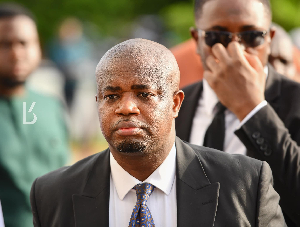
If ten pupils were selected particularly from public schools in the Upper East region for a reading skill test today, the examiner would be unable to count beyond four fluent readers among them.
This is according to the Ghana Education Service (GES) whose authorities are pressing stakeholders to redouble their pace on a joint crusade for reading habits among schoolchildren in the region.
“Poor reading skills have been identified as a major setback in our academic achievements in the region, leading to poor educational learning outcomes,” announced the Upper East Regional Director of Education, Augustine Ayirezang, at the regional celebration of Ghana’s 62nd Independence Day Anniversary in the Bongo District.

“I wish, therefore, to use this occasion to call on our teachers, parents, students, the media, traditional authorities and the general public to champion the crusade of encouraging reading habits to our students at all levels which can lead to better learning outcomes among our youth,” added the Regional Director.
He told Starr News at the close of the event: “Out of 10 pupils in public schools in the region, only between 3 and 4 pupils can read fluently. It’s a serious issue”.
Regular Visits will Crush Disturbances on Campus— Reg. Minister
The region has recorded at least 16 cases of campus unrests at some second-cycle institutions between 2014 and 2019.
The theme for the independence anniversary was “Celebrating Peace and Unity”. The Upper East Regional Minister, Paulina Patience Abayage, four months old in office, anchored her maiden Independence Day anniversary speech on the theme, pointing at regular visits to the schools as an antidote to the recurring violent campus protests.
“Assembly members, unit committee members and all other stakeholders should also endeavour to visit our schools regularly to interact with school authorities to ascertain their challenges. This will go a long way to encourage them to give out their best and to forestall any issue that would breed disturbance between students and school authorities.
“Our bigger challenge as a people is poverty, and the situation is further worsened by large-scale indiscipline in all sections of our society. In this crusade, parents, teachers and all stakeholders have vital roles to play in spreading the message of honesty, tolerance, peace and harmony. Our teachers, elders, must not only be preaching these virtues but [also] must be seen to practise them and be role models for communities and our children in particular to emulate,” she told the anniversary crowd.

The Low Points of the Celebration
The event was programmed to start between 6:30am and 7:00am. The parade venue, the Bongo Social Centre Park, was not fully set hours after the participating schools and different regiments of security forces had arrived ahead of some public servants and public figures.
`1,230 schoolchildren selected from 41 primary, junior high and second-cycle schools took part in the parade. When the march-past got underway, the schools were confused as to which direction to turn next after saluting and streaming past the Regional Minister. This is because no security official was detailed to direct the outflow of the procession. The situation persisted until some observers drew the attention of the organisers to the lapse and, consequently, a community police officer was assigned to effect order.
A weather forecast relayed by the National Disaster Management Organisation (NADMO) on the eve of the celebration came true. But invited guests, including the Governor of the Central South Region of Burkina Faso, Casmir B. Seguida, the District Chief Executive of Tone in the Savannah Region of Togo, Tchimbiandja Yendoukoa Douti, and the Upper East Regional GES Boss, read their speeches from white sheets of paper in the predicted charring sun without an overhead cover, at least an umbrella.
Schoolchildren and teachers stood for hours on parade without a shade. And there were no mobile toilets at the grounds for anniversary guests and spectators who might want to respond to the call of nature during the event.
The High Points of the Celebration
In a region said to have only one ambulance, organisers of the event placed a premium on the safety of the parade crowd by putting an ambulance on standby.
Officials of the Ghana Red Cross Society also were on hand to offer first aid should the need arise. The Regional Minister did not stand in the sun to speak to the crowd. She delivered her address from the same roofed soapbox she stood to take the march-past salutes. Although the occasion started late, the event, thanks to the masters of ceremonies who mastered the intervals so well, passed as briefly as though it started early.
It was the first time the regional Independence Day celebration was held outside Bolgatanga, the regional capital. The paradigm shift, for the Bongo District, was not only historic but also elevating. It afforded the District Chief Executive, Peter Ayinbisa Ayamga, a rare opportunity to tell the foreign guests and the tourists present about some investment opportunities in the area.
“There is a lot of clay deposit in the Bongo District. Any investor who wants to invest in the clay industry can do that for more than forty years. The raw material is heavily deposited. We have also discovered phosphorus in large quantities in Bongo, which is used in producing cement. We also have a shea processing factory at Bongo-Soe. We have rocks, stones, which are used to produce tiles, and we have a unique smock industry.
“I feel very, very elated because this is the first time that the regional celebration is taking place in Bongo. It’s the maiden edition. The local economy was greatly boosted. And it’s the first time people saw fireworks display on the eve of the celebration. We are grateful for the trust reposed in Bongo to host the event. It means there are a lot of potentials in the people of Bongo,” he said.
Source: Ghana/Starrfm.com.gh









